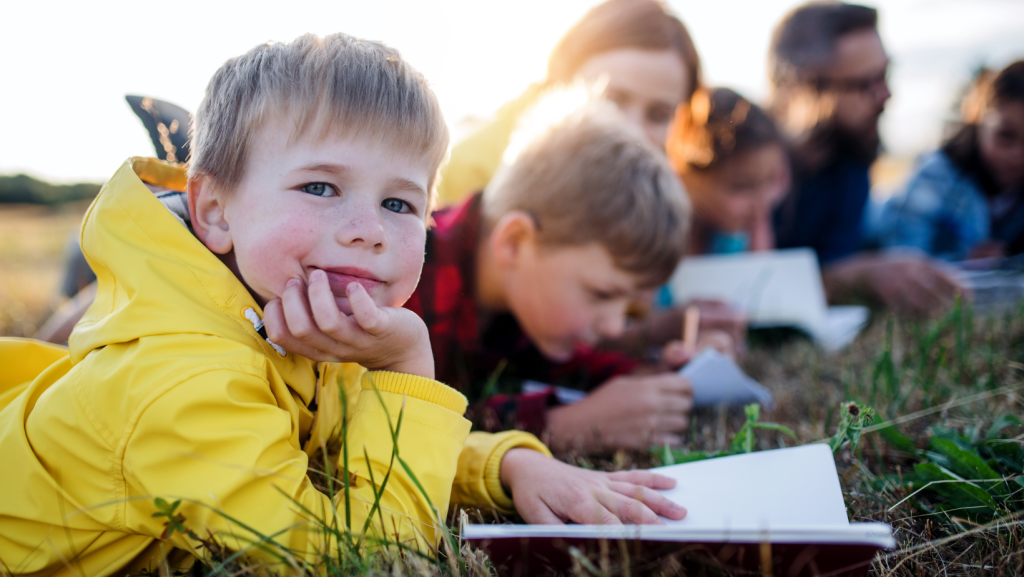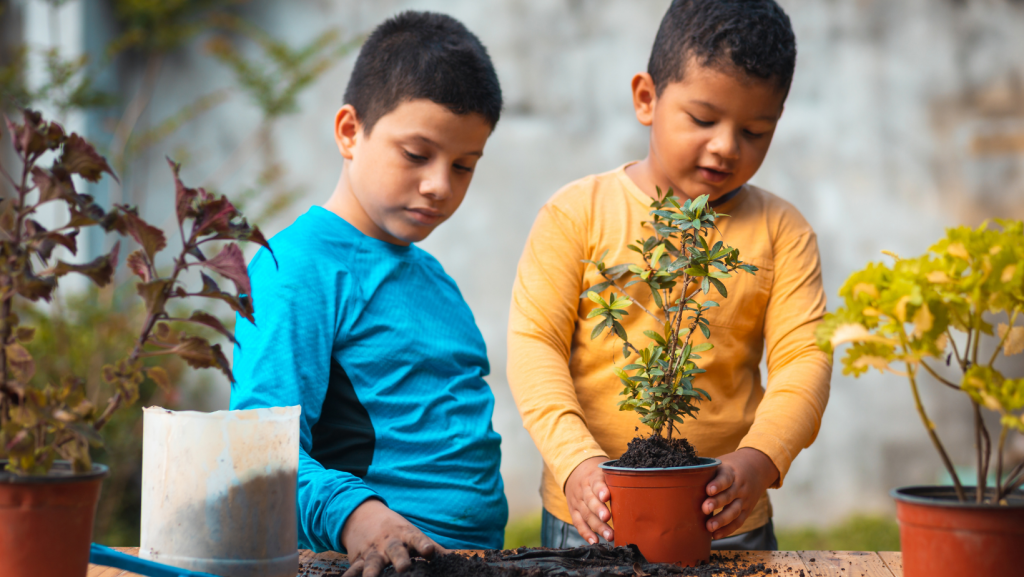Growing Minds: Why Connecting Children with Gardens, Plants, and the Environment Matters
Whilst visiting a garden I overheard someone complaining that children were there, and that they shouldn’t be there as they have no interest. I was saddened, that an adult would not see the benefit of allowing the young minds to learn, enjoy and appreciate a garden.
Victoria North
In an increasingly digital world, the simple act of digging in the dirt, watching a seed sprout, or exploring a vibrant garden can offer children profound and invaluable lessons. Teaching children about gardens, plants, and the wider environment isn’t just a pleasant pastime; it’s a fundamental investment in their development, well-being, and future as responsible citizens of our planet.

The Seeds of Learning: Why This Education is Crucial
Connecting children with the natural world, particularly through gardening and plant knowledge, cultivates a rich array of benefits:
- Environmental Stewardship: Understanding how plants grow, their role in ecosystems, and the importance of biodiversity instills a deep respect for nature. Children learn about sustainability, conservation, and their own impact on the environment, fostering a sense of responsibility for the planet.
- Scientific Discovery: Gardens are living laboratories! Children learn about biology (plant life cycles, photosynthesis), chemistry (soil nutrients), and even physics (water absorption, sunlight). It encourages curiosity, observation skills, and critical thinking.
- Health and Well-being: Spending time outdoors reduces stress, improves mood, and encourages physical activity. Gardening can also lead to healthier eating habits as children are more likely to try fruits and vegetables they’ve helped grow.
- Patience and Responsibility: Nurturing a plant from seed to maturity teaches patience, perseverance, and the rewards of consistent effort. It instills a sense of responsibility as they care for living things.
- Sensory Development: Gardens engage all the senses – the smell of damp earth, the vibrant colours of flowers, the feel of rough bark or soft petals, the sound of buzzing bees, and the taste of fresh produce.
- Creativity and Imagination: A garden can be a magical place, sparking imaginative play and fostering a connection to the wonder of the natural world.
- Problem-Solving Skills: From deciding where to plant to figuring out why a plant isn’t thriving, gardening presents real-world problems that encourage children to think creatively and find solutions.

Beyond the Backyard: The Power of Visiting Gardens
While home gardening is wonderful, visiting public or botanical gardens offers unique and expanded learning opportunities:
- Exposure to Diversity: Large gardens showcase an incredible variety of plants from different climates and regions, introducing children to global biodiversity they might not encounter elsewhere.
- Scale and Scope: Children can grasp the grandeur of nature, seeing mature trees, expansive flower beds, and intricate landscape designs that are impossible to replicate at home.
- Historical and Cultural Context: Many gardens have rich histories, offering insights into different cultures, historical periods, and the evolution of plant use and cultivation.
- Expert Knowledge: Public gardens often have educational programs, guided tours, and signage that provide in-depth information about plants, ecosystems, and conservation efforts, taught by experts.
- Inspiration and Awe: The sheer beauty and tranquility of a well-designed garden can inspire a sense of awe and wonder, fostering a lifelong appreciation for nature’s artistry.
- Community Connection: Visiting gardens can be a shared family or school experience, strengthening bonds and creating lasting memories around a common appreciation for nature
In essence, providing children with opportunities to engage with gardens, plants, and the environment is about cultivating not just green spaces, but also green minds. It equips them with the knowledge, values, and appreciation necessary to thrive in and protect the natural world for generations to come.